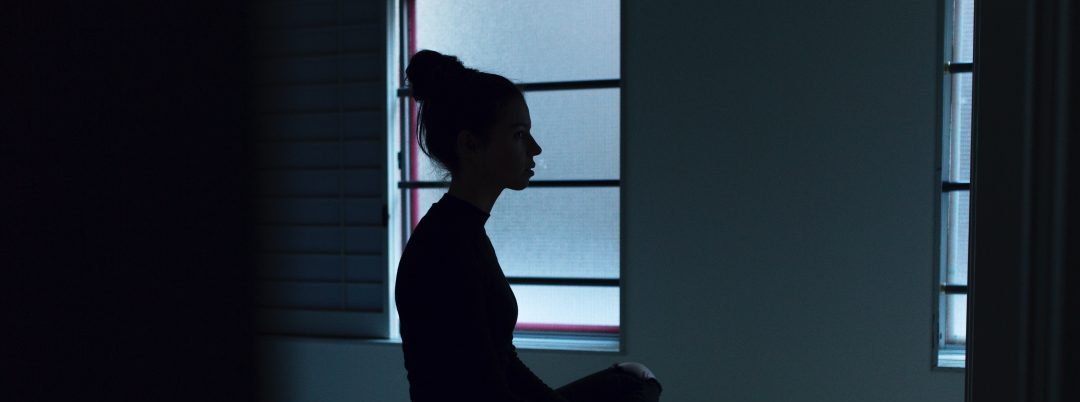
Learning the difference between sadness and depression
We live in a time when what life is supposed to look like largely comes from an external world of media messages. We see the happy people on TV and begin to wonder what’s wrong with us if we ourselves find it hard to smile.
We are sold a lifestyle that only has positives: more success, more money, more friends, bigger, better, onwards and upwards; a sort of perpetual mania that banishes negatives, or views “lack”, “emptiness”, and “silence” as a deficiency.
Most recently, this cultural reverence of a life of only positives has cemented itself in the big book of mental health diagnoses – the DSM 5. In the new DSM, the boundary between sadness and depression has become harder to distinguish. Now, even people who have lost a loved one and are going through a natural period of grieving can receive the label of “depression.”
Yet, depression and sadness are quite distinct emotions and should not be confused.
Depression is heavy and dark, and it inspires absolutely nothing, It is the closest human equivalent of hibernation. When we are depressed, the future that is needed to motivate us and propel life forward gets sucked into the dark hole of a perpetual nothingness. Time begins to stands still. We have no reason to get out of bed in the morning…
Sadness, however, is quite different. It is, in reality, a testimony to a life well-lived. It speaks of a loss, and loss can only happen to those who, at one time, experienced happiness or joy. Sadness, in fact, can be extremely beautiful. It makes it clear to us what really matters. Only in loss do we realize what we had or what could have been.
Only when standing in the valley can we, all of a sudden, appreciate the majestic height of the mountain. The composer Angelo Badalamenti, who wrote the music for the TV series Twin Peaks, understood this quite well. He tried to capture the mood of sadness in his music through what he called “The tragically beautiful.”
The existential poet Rainer Marie Rilke was also a master of this double-edged emotion. One of his most beautiful poems is about two people who almost meet in the perfect union of love but just miss each other and perpetually live in the shadow of what could have been.
And yet in the poem “You Who Never Arrived”, the loss of something is not a mere absence, but a sweet lingering memory that teaches the protagonist about what is worthwhile and meaningful in life. “Who knows?” the protagonist ponders, “Perhaps the same bird echoed through both of us yesterday, separate, in the evening…”
These are not the words of a hopeless, depressed person, but of someone in the nearness of a truth. Even if this truth revealed itself only in the absence of what could have been, and not in the joy of an attained present, it is still truth gained.
When we lose someone, as in grieving the death of a loved one, the pain is almost unbearable, but it is exactly equivalent to the degree of the investment we have made in life or in that other person.
In this sense, love and loss-or joy and sadness-necessarily go together. Only a manic society would forget this truth and try to medicate away the absence that is needed to appreciate fullness.
A person who cannot admit to sadness and loss, and who fights these most natural emotions, is a person who can only be superficially involved with people and things. The opposite of mania is not sadness, but depression. Depression is what happens when we deny certain feelings and cannot express them openly. When we cannot feel angry, for example, the anger has nowhere to go and turns into a heavy powerlessness.
When we cannot risk the pain of loss and rejection, we have no choice but to dim the intensity of life and shut down the very emotions that make us feel alive. When we must feel and look like some imaginary ideal of happiness, we deny reality and turn into hollow husks.
We may succeed at life from some external point of view, but we will feel utterly empty inside.
So let’s not confuse apples and oranges as in the DSM-5, and let’s not medicate away the full spectrum of human emotions. Let us agree that it is okay to be sad and that loss is an inevitable part of life. Maybe then, and only then, can we avoid becoming depressed.
Let’s keep in touch! Sign up to receive our newsletter:
Start a Relationship with An Exceptional Counselor
- Skilled and caring professional counselors
- Accepting all major and most insurances
- High-touch customer service & premium benefits
- Same- or next-day appointments
- Ultra-flexible 23.5hr cancellations














